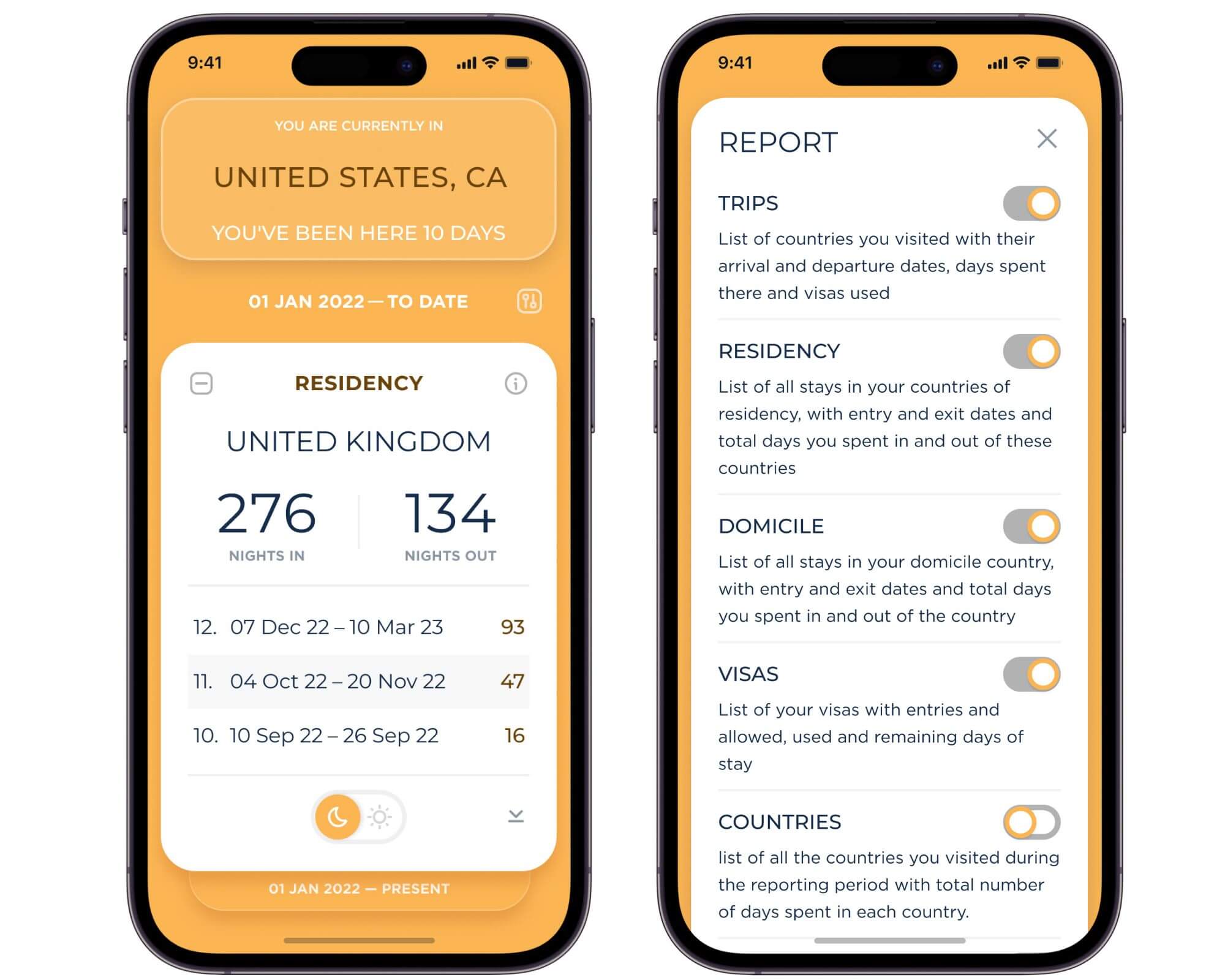Are you struggling with tracking the number of days and nights spent in various countries to ensure you are not breaking visa or tax residency rules?
Then this guide is for you.
For expats, the challenge of accurately tracking the number of days and nights spent in their domicile and residence countries over an extended period of time often becomes apparent when they first attempt to legalize their residence status or grapple with tax residency.
In both scenarios, the actual time spent in or out of a specific country, and sometimes even the comparison of time spent between countries or states, emerges as a critical factor.
Secure Peace of Mind with Best-Value International Health Coverage
International Citizens Insurance provide free, no-obligation quotes from the leading international health insurance providers with plans tailored to meet your needs. Trusted by thousands of expats worldwide.
The complexity of retrospective data
Retrospectively reconstructing such data over a long time (from one to three, sometimes five or more years) is often a non-trivial task.
It is a challenge that can be relatively easily solved only by well-organized individuals. Passport stamps, unfortunately, usually blur and fade over time and are often not even affixed (for example, when crossing the borders of U.S. states or E.U. countries).
Consequently, immigration lawyers are sometimes forced to request border authorities for the exact dates of their clients' border crossings for a hefty fee, as it is impossible to submit documents without precisely accurate data.
The issue of correctly counting days is particularly relevant for citizens of the many countries with visa-free access to the Schengen area.
The rule that staying in the Schengen area should not exceed 90 days for any 180 days, although seemingly simple, is extremely difficult to calculate in practice.
Violations can lead to severe penalties, ranging from significant fines and bans on entry for extended periods to deportation.
After Brexit, the number of Britons who violated this requirement went into the thousands in the first year alone. Schengen area calculator apps topped the download charts in app stores.
Travel organizers vs. travel trackers
To address this issue, there are a few apps available that fall into two categories: travel organizers and travel trackers.
Travel organizers allow users to save all accompanying travel documents, such as boarding passes and hotel reservations. However, all trips must be manually entered, and there is no way to create consolidated reports by country.
On the other hand, travel trackers automatically detect all border crossings and then generate reports on the user's stay in selected countries for selected periods.
They do not allow storing travel documents (or do so partially). Still, their automatic detection and report generation features make them a valuable tool for expats and immigrants.
Travel organizers, like TripIt and Wanderlog, were initially created for active travelers and business trips, where the systematization of travel documents can significantly facilitate the journey.
However, their relevance has declined as airlines and accommodation booking services have created their own comprehensive apps.
Moreover, entering all trips manually requires effort and is often postponed or ignored by users, leading to inevitable data loss. The lack of reporting functionality also reduces the value of this type of application for expats and immigrants.
Travel trackers, the most popular of which is Flamingo — Travel Days Tracker, emerge as a must-have tool for expats, digital nomads, and immigrants.

They save the user from having to fill in their travel information themselves (although previous trips will have to be added by hand), add all trips automatically, and allow users to generate a report in an XLS or CSV file for any chosen period to present to authorities or immigration lawyers.
These apps consider time zones, daylight saving time, and even border crossings of U.S. states, U.K. countries, and other territories. They also provide a system of notifications about the approach of critical stay limits in selected countries and day count limitations in domicile and residence countries.
Moreover, the Flamingo app includes such useful features as a Schengen calculator with warnings of possible violations of the 90/180 rule and a Passport Index showing visa requirements for different countries based on the user's citizenship.
Embracing the expat journey with modern tools
In conclusion, while the expat journey comes with its unique set of challenges, modern technology provides tools to simplify these tasks.
Routine tasks such as tracking days and nights in domicile and residence countries can be easily automated with useful mobile apps.
This leaves expats free to focus on the exciting aspects of their journey and truly enjoy settling into their new home.
Finding the best countries to retire abroad:
- 5 Cheapest Countries In Europe To Retire To
- The Best Places To Retire In Europe For Quality Of Life
- 5 European Destinations With Great Weather All Year Round
- The 13 Cheapest Countries To Retire To
- Best Places To Retire In South America
- 5 Best Countries To Retire In Southeast Asia
Secure Peace of Mind with Best-Value International Health Coverage
International Citizens Insurance provide free, no-obligation quotes from the leading international health insurance providers with plans tailored to meet your needs. Trusted by thousands of expats worldwide.




